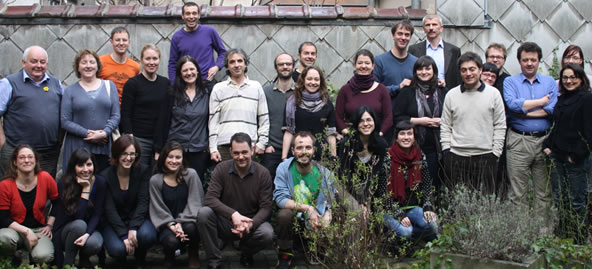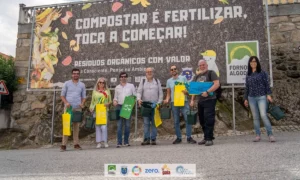Meeting in Brussels of NGOs promoting the Zero Waste strategy for Europe
On Monday 14th of March more than 30 people coming from 13 European countries –Belgium, Bulgaria, Croatia, Estonia, France, Germany, Greece, Italy, UK, Czech Republic, Romania, Spain and Hungary- got together in the first meeting to define the Zero Waste strategy for Europe. The event was organised by GAIA and EEB.
 During the day there were debates about what does Zero Waste actually mean in Europe and the need for the NGO community to set the agenda for waste and resource management for the future. That is proposing to go beyond a recycling society towards a Zero Waste society. It was emphasized that Zero Waste is a journey, not a destination.
During the day there were debates about what does Zero Waste actually mean in Europe and the need for the NGO community to set the agenda for waste and resource management for the future. That is proposing to go beyond a recycling society towards a Zero Waste society. It was emphasized that Zero Waste is a journey, not a destination.
The main difference between a recycling society and a zero waste society is the emphasis put on reducing the residual fraction. Zero Waste means maximising recycling but it also means minimising the residual fraction, aiming at phasing out land-filling, incineration and any other disposal option.
Zero Waste is an alternative to traditional waste management because it aims not to manage waste but to phase it out so that the refuse of a process is the raw material for a new process. For this reason Zero Waste can also aim at social and economic regeneration, at bringing the carbon back to the soils, at guaranteeing to the consumers the power to choose and at bringing environmental justice to the way we manage our common resources.
In the afternoon there were presentation of Zero Waste experiences from the Italian, UK and Catalan zero waste networks. In Italy there are already 25 municipalities committing to zero waste and the Zero Waste Research center in Capannori is already in operation with successful experiences in suggesting redesign operations.
This meeting set up the framework for future cooperation between European NGOs and replication of best practices. The Zero Waste strategy is starting to spread all over the EU!This meeting set up the framework for future cooperation between European NGOs and replication of best practices. The Zero Waste strategy is starting to spread all over the EU!


